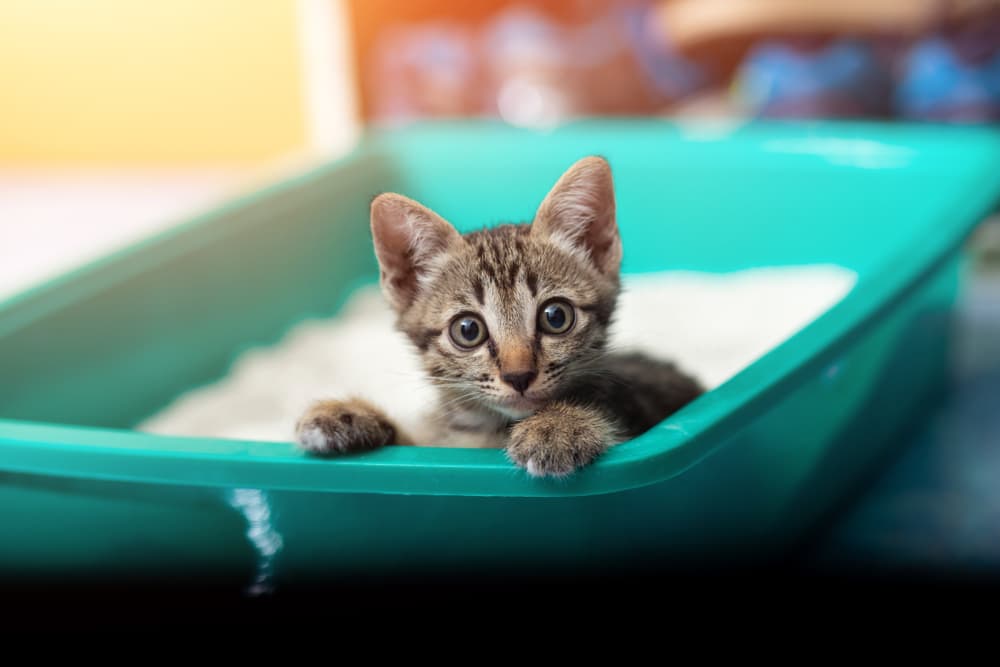Although having cats as a pet is enjoyable and companionable, maintaining the smell of the litter box may be difficult. Controlling odor is crucial for cat owners who want to keep their houses smelling good. This post will discuss six practical ways to manage smells in your house so that you and your kitty companion may always come home with a fresh, welcoming scent.
Choose the Right Litter & Litter Container:
Choosing the right cat litter and cat litter container for any waste to be disposed of, is essential to controlling odors. It is strongly suggested to choose clumping litter manufactured from organic resources like clay, wood, or maize since it has better moisture and odor-absorbing qualities than non-clumping kinds. Additionally, investigate litter solutions that are specifically made to eliminate odors; some of them include baking soda or activated charcoal. These chemicals help create a fresher atmosphere by absorbing and eliminating offensive odors. Try out several kinds of litter to find out which one works best for odor control in your house.

Clean the Litter Box Regularly:
To stop smells from accumulating, the litter box must be maintained consistently. To get rid of clumps and solid waste quickly, try to scoop the litter box no less than once a day. To stop the smell from coming inside, dispose of the waste right away in an outside trash can by sealing it tightly with plastic bags. Additionally, give the litter box a full weekly cleaning and disinfection with a solution of mild soap and water. By removing any lingering bacteria and odors, this practice helps keep your cat’s habitat clean and reduces offensive scents.
Use an Odor Neutralizer:
Odor management may be greatly enhanced by adding an odor-neutralizing agent to your cleaning regimen. A thin coating of baking soda or charcoal that is activated should be sprinkled at the bottom of the litter box before adding new litter. The litter box will continue to smell good for longer, thanks to the natural odor absorbers. As an alternative, think about setting up air purifiers or odor-neutralizing sachets close to the litter box to get rid of any residual odors. Strongly scented perfumes or air fresheners should be avoided since they may aggravate your cat’s delicate respiratory system.
Increase Ventilation:
Effective ventilation and circulation are essential for reducing the smell of your litter box inside your house. Place the litter box somewhere with enough airflow and good ventilation, like next to a window or in a room with a fan or air purifier. Odors may be helped to leave the area by opening windows or using vent fans, which will assist in keeping them from being trapped and lingering. It is best to keep the litter box out of confined places and busy areas as this might aggravate odor problems and cause discomfort for your cat and you.

Wash Fabrics and Surfaces Regularly:
Establish an ongoing cleaning plan to stop the smell of the litter box from transferring to textiles and surfaces in your home. To properly get rid of smells and bacteria, wash your cat’s blankets, bedding, and any other fabric items that come into touch with the litter box on a regular basis. Additionally, use a pet-safe cleaner on an ongoing schedule to clean the walls, floors, and countertops around the litter box. This keeps the living space odor-free and helps get rid of any leftovers. To further reduce odor-related problems, place washable litter mats or disposable liners beneath the litter box to collect stray litter and stop it from migrating throughout your house.
Maintain Your Cat’s Health:
It’s critical to give your cat’s health and well-being priority since a healthy cat is less prone to create strong-smelling excrement. Make sure your cat visits the vet on a regular basis for treatment of any underlying health concerns that could be causing odor issues. Feed the cat a balanced diet made up of premium cat food, as proper nutrition is also very important in preventing litter box smells. Giving your cat fresh water every day and thinking about adding wet food to their diet can help them drink more water, which is necessary for urinary health and urine dilution.
Conclusion
Being a cat owner means that you have to be proactive in controlling odors in your house and use a variety of techniques based on your cat’s requirements and preferences. You can make your home smell nice and new for you and your cat by selecting the correct litter, keeping the litter box clean, using odor-neutralizing products, and encouraging good ventilation and hygiene habits.






